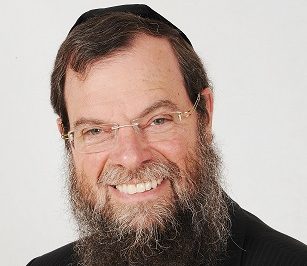
News

Bringing the seder home
RABBI YOSSY GOLDMAN
Take the upcoming yom tov (Jewish holiday) of Pesach. Children are trained to ask the four questions at the seder. Fathers and grandfathers provide the answers (actually, if you’re not sure, the Haggadah gives the answers and, fortunately, it’s an “open book test”). Here, we have an annual family occasion where we get the necessary hands-on experience in dialogue, discussion, and engagement. Surely, this must foster healthier communication throughout the year – and for all our lives in fact. Your old cheder teacher notwithstanding, Judaism really does encourage questions.
Judaism has always encouraged questions, discussion, and debate. The Talmud is filled with the most rigorous intellectual, philosophical, and legal debates. Every page of Gemarah records another argument between the greatest of the Talmudic sages. They weren’t enemies slugging it out in the Beit Midrash (shul study halls). They were the best of friends who held the deepest respect for each other. They were simply engaging in open, honest, healthy debate about what our tradition teaches, and what should be the final halacha in practice.
Some of those sages were fathers and sons. The son addressed his father with reverence but when it came to matters of law, he was encouraged to question and even argue the point. And he did. The great Biblical and Talmudic commentator, Rashi, had his interpretations challenged by his grandsons, Rashbam and Rabbeinu Tam, on a regular basis.
So, questions have always been encouraged. But, of course, we need to find answers too. Otherwise our young questioners will lose faith in our ability to guide them correctly. Naturally, we don’t always need to have the answers on the tip of our tongue. It’s ok to say, “I don’t know.” But we should make every effort to find the answers, whether by asking our own rabbis, or everyone’s rabbi – Google. The beauty of the seder is that it brings the dialogue out of the yeshivas and study halls right into our homes and dining rooms.
Indeed, it’s nothing short of absolute genius that Judaism brings our faith from the synagogue right into our homes. The Jewish home has long been the laboratory of Jewish life.
I’m a rabbi, and I want people to come to shul. But I must admit that the home provides far more opportunities for the practice and observance of Judaism than shul does. Shul is a house of prayer. It is also a house of study. And, yes, today we see shul as a community centre and a place of social activity where important interaction between people and families takes place.
But far more mitzvahs (commandments) of our tradition are observed at home than in shul! (I know this isn’t good for my business, but I must be honest.) Just to name a few, while shul offers prayer, Torah study, and tzedakah (charity), the home offers mezuzah, kashrut, hospitality, educating our children, family sanctity, the practical observance of Shabbos, and all our festive yom tovs.
When it comes to Pesach in particular, the most important parts of the festival, all the main traditions, and the biggest mitzvahs are observed, not in shul, but right at your dining room table! Eating matzah, maror, drinking the four cups of wine, telling the exodus story, finding the afikoman (the broken piece of matzah) and more, are all experienced together with the family, in our own homes.
Unfortunately, not everyone comes to shul. But more than 90% of South African Jews generally do attend a Pesach seder. And in a big way, it’s through this annual family event that our history and traditions live on. So many of our childhood memories revolve around our own grandparents’ discussions at the seders of our youth.
So, as we are now in lockdown and at home with our families with lots of new-found time on our hands, let’s use that time wisely and productively. Let’s ensure that all of us, we and our children, read up and prepare well for the seder. Get kids to prepare not only the four questions, but also insights, stories, and anecdotes for the seder and for the other yom tov meals too. The bookshops are closed, but there is so much available online today.
This Pesach, may the coronavirus quarantine provide us with the silver lining of the most interesting, engaged, and connected seder we will ever experience. May the Egyptian bondage inspire our family bonds to be stronger than ever, and eternally enriched. Amen.
- Rabbi Yossy Goldman is the rabbi at Sydenham Shul, and the president of the SA Rabbinical Association.




